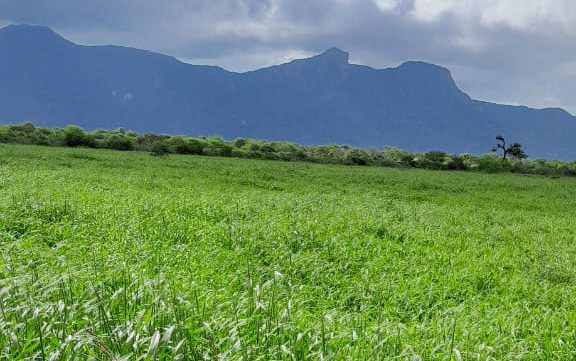
Resilience and nature-based solutions.
One of the most urgent issues of our time, climate change has widespread implications—from the exacerbation of poverty, to the breakdown of infrastructure, to the loss of environmental, political, economic and social security. Experts agree that climate change threatens to set back development efforts by decades, placing least developed countries and already-vulnerable populations in an even more precarious position.
Climate change is affecting everybody everywhere and having a huge impact on ecosystems and natural resources. Human induced natural disasters are exacting a heavy toll on our planet’s ecosystems and by extension local communities. Lives and livelihoods are lost as more floods and droughts impact local communities with greater frequency and severity. Human health is impacted as zoonotic diseases proliferate due to habitat degradation. Biodiversity loss and widespread natural resource depletion, destroying the natural buffer that once protected us from climate extremes.
The poorest people in Africa are the least responsible for the climate crisis and least resourced to deal with the consequences. The climate crisis has exacerbated inequalities and social injustice. The Earth’s vitality is disappearing. For pastoralist and agro pastoral communities around Africa, climate change poses daunting challenges—and disproportionately impacts poor rural communities who depend on the land to live.
Our Intervention Strategies:
APID’s integrated approach promotes adaptation and mitigation measures through nature-based solutions and locally-led adaptation to address the impacts of climate change. We work to protect resources and improve access to the tools and knowledge needed to adapt to the adverse climatic impacts and adopt sustainable practices to build resilience.
Centering people in understanding the impacts of climate change means understanding how this impacts people’s everyday lives, their livelihoods, their cultures, their land and their relationship with the natural world. Trends of climate change and environmental degradation are amplifying natural hazards, making the poorest even more vulnerable and worsening inequalities.
We partner with pastoral and agro pastoral communities, private sector, governments and other international actors. Together we work to protect rangeland and biodiversity, take action on climate, and promote the rights and improve the livelihoods of rural Communities. This is in line with the two inextricably linked Sustainable Development Goals (SDGs) 13 (combating climate change and its impact) and 15 (protecting, restoring and promoting sustainable use of terrestrial ecosystems, sustainably managing forests and halting land degradation and biodiversity loss).
Our best hope for a brighter, more resilient future is to embrace sustainability on a systemic and massive scale. That’s why our work partnerships are built upon a simple, yet powerful idea: When we act collectively, we can create a world where people and nature thrive together.
APID’s approach to environmental protection aims to conserve natural resources and, where possible, to repair damage and reverse trends. We focus on the inter-connectedness of natural resources, aiming to achieve a balance between biodiversity conservation, its sustainable use, and the equitable sharing of the benefits arising from natural resources.
People’s rights to access and control natural resources are not respected: women and poor people are particularly excluded, and natural resources are being degraded at the expense of food sovereignty, livelihoods, ecological integrity and climate justice.
We work for Rangelands to be used sustainably and protected. There are two important strands to this effort: support improvement laws and policies on rangelands and empowering local communities adjust to climate change and build resilience for the future.
Through our work, we strengthen rangeland restoration, build climate resilience and foster more diversified, sustainable and profitable livelihoods so that those who are challenged by poverty and marginalization can thrive
APID actively promotes unique and innovative tech based approaches to uplift vulnerable communities and groups and channel them into avenues that lead them to self-sustainability.
We engage communities to incentivize sustainable natural resource management and livelihood that in turn positively impacts conservation and ecosystem restoration and aim at providing solutions for after effects of climate change and its vulnerabilities across social and political ecosystems.